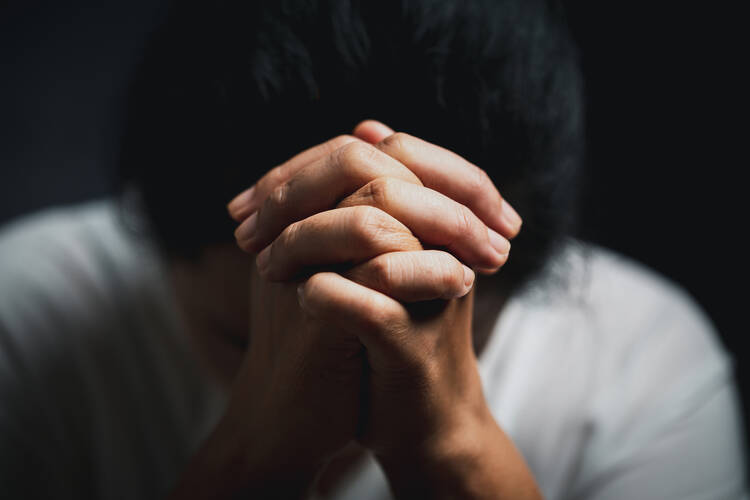A Reflection for Saturday of the Fourth Week in Ordinary Time
Find today’s readings here.
Give your servant, therefore, an understanding heart to judge your people and to distinguish right from wrong.
It is hard to think of anyone in the Bible as “privileged” as King Solomon. His father won all of Israel’s wars, leaving the young Solomon a legacy of peace and prosperity. Though the Bible is largely filled with war, pestilence and other hardships, the account of Solomon’s reign feels more like a fairy tale or a chapter from The Arabian Nights. This is Israel’s hour of opulence and splendor. When God tells Solomon, “Ask something of me and I will give it to you,” my childhood mind immediately pictured a genie-like figure hovering in the air above Solomon’s head.
Solomon had the world on a string, but he didn’t ask God for superpowers or piles of jewels. Daunted by the magnitude of the responsibility appointed to him, Solomon asked for wisdom, so that he could execute his duties faithfully. God was so pleased that he threw in the magnificent wealth and the promise of a long life for good measure.
We don’t have kings in America, but we do live like kings in many ways. Historically, very few people worldwide have been able to enjoy the material comforts, freedoms and opportunities that are considered “normal” by many Americans. We have much to be grateful for, but partly for that reason, Solomon’s predicament may ring true for us as well. As inheritors of tremendous gifts, we also find ourselves confronting difficult decisions. How do we steward the resources that are granted to us? What vocations or career choices will best enable us to develop our gifts and contribute to the building of the Kingdom? How can we do right by our loved ones, communities, country and church? Together with our freedoms, we have inherited endless opportunities for making mistakes, which may help to explain why anxiety is one of the great afflictions of our time.
If we are anxious though, why do we so often hesitate to follow Solomon’s example by asking God for wisdom? There are many possible reasons. It might feel presumptuous, and we may even convince ourselves (in an age obsessed with meritocracy) that it is unfair to ask for divine help in ordering our earthly affairs. Or, we may prefer to revel in the freedom of making our own choices. If we ask God to weigh in, we may not like his opinion.
None of this deterred King Solomon, who stood among the earth’s most privileged and powerful. As the world showered him with praise, he acknowledged himself as “a mere youth, not knowing at all how to act,” and asked for help. His humility benefited him.
Lest we imagine that God’s wisdom is reserved for the privileged, however, we must also pay attention to today’s Gospel. Here Jesus stands before “a vast crowd” assembled from surrounding villages. Most of them have walked a great distance to see him. Many are hungry. In other Gospel passages, we see Jesus feeding and healing people, but here the focus is different: he begins to teach them. This encounter has none of the grandeur of Solomon’s genie-like wish, but it is more poignant because it shows that God is just as responsive to the needs of ordinary people. Jesus is “moved with compassion” because the people are ignorant and lost. He wants to nourish them with the truth.
We should never be reluctant to ask for God’s truth. We can ask him for the prudence to make better decisions, or the insight to understand what loved ones are thinking or feeling. We can ask him to help us make sense of suffering that is not meaningful to us. We can ask him to show us what our families, communities or country truly need. It is always God’s prerogative to decide when and how he will offer the illumination we crave. But as today’s readings remind us, it never hurts to ask.








